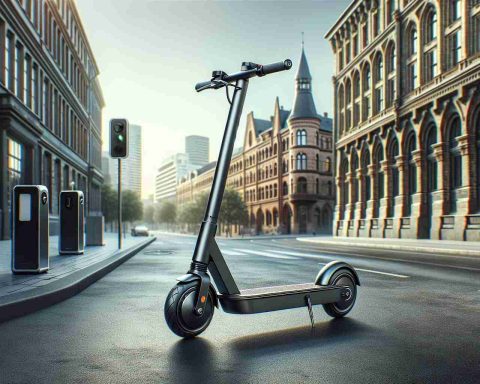Major Decision by TTC Board
In a significant ruling, the Toronto Transit Commission (TTC) has decided to prohibit e-bikes and other micromobility devices equipped with lithium-ion batteries during the winter season. This ban will take effect from November 15 until April 15, citing fire risks associated with these devices.
City officials recognized the potential impact on lower-income gig workers, particularly those employed in the food delivery industry, who heavily rely on e-bikes for transportation. The board’s acknowledgment of these repercussions reflects ongoing concerns regarding the livelihoods of marginalized communities who often use public transport for their shifts.
While officials plan to launch an educational campaign to inform the public about the ban, they may escalate enforcement measures to prevent violators from bringing these devices aboard TTC vehicles. This crackdown follows a serious incident where an e-bike ignited on a subway train last New Year’s Eve, raising alarms regarding passenger safety in enclosed spaces.
Toronto Fire officials have warned that lithium-ion batteries can enter a state of thermal runaway, posing extreme fire hazards that are difficult to control. Despite suggestions to adapt the ban based on weather conditions that compromise battery safety, the board remained resolute, poised to implement the new rules.
Signage detailing the ban will soon be displayed across TTC vehicles as enforcement begins gradually. These changes underscore a growing concern for safety amidst the challenges faced by gig workers in Toronto’s public transport landscape.
Toronto Transit Commission’s Winter Ban on E-Bikes: A Step Towards Safety or a Burden for Workers?
Major Decision by TTC Board
In a decisive move, the Toronto Transit Commission (TTC) has announced a ban on e-bikes and other micromobility devices equipped with lithium-ion batteries during the winter months, from November 15 until April 15. This ruling stems from serious safety concerns regarding the fire risks associated with these devices, particularly following a significant incident on New Year’s Eve where an e-bike caught fire on a subway train.
# Fire Safety Concerns
Toronto Fire officials have been vocal about the hazards posed by lithium-ion batteries, which can undergo thermal runaway, leading to uncontrollable fires. Given the enclosed nature of public transit, the potential consequences of such incidents have prompted TTC officials to act decisively. The ban aims to mitigate risks to passengers and staff during a season when the likelihood of unsafe conditions increases.
# Impact on Gig Workers
While the TTC’s initiative is focused on safety, it has raised concerns about the impact on lower-income gig workers, especially those in the food delivery sector. Many of these workers depend significantly on e-bikes for transportation, and the ban may impede their ability to earn a living during the winter months.
This decision reflects a broader trend in urban transportation systems grappling with the dual challenges of public safety and economic inequality. As city officials recognize the ramifications of compliance for vulnerable communities, discussions surrounding alternative solutions or mitigative measures for impacted workers remain essential.
# Educational Campaign and Enforcement
To address public awareness, the TTC has proposed an educational campaign aimed at informing users about the reasons behind the ban and the risks associated with lithium-ion batteries. Furthermore, enforcement will be implemented gradually, with new signage to be displayed across TTC vehicles to remind passengers of the policy.
However, critics argue that the enforcement measures could disproportionately affect marginalized communities who might lack alternative transport options during winter. Thus, ensuring equitable access to transportation alternatives will be a crucial discussion point as the ban rolls out.
# Future Directions
As urban areas continue to grapple with the integration of micromobility devices into public transit systems, trends suggest that safety protocols will likely tighten, driven by incidents and technological advancements. Innovations in battery technology, such as the development of safer alternatives to lithium-ion batteries, could shape future regulations.
Moving forward, the TTC and other transit authorities may need to explore partnerships with gig economy platforms to provide support for workers who may be affected by such bans.
In conclusion, while the TTC’s decision is rooted in safety and public health concerns, its implications for gig workers underscore the need for balanced solutions that prioritize both passenger safety and equitable access to transportation alternatives.
For more information on similar transit issues, visit the TTC website.


















